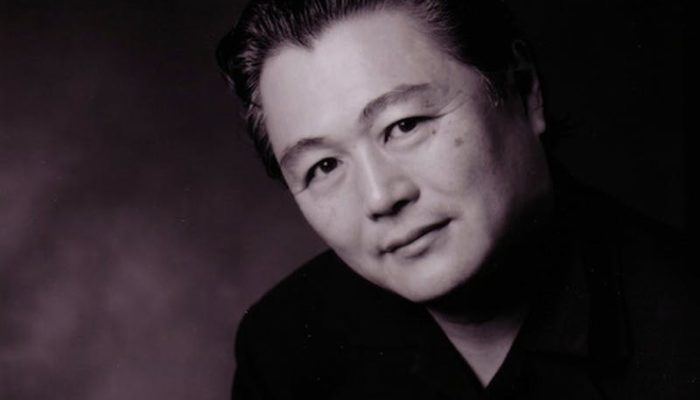Take, Eat
RJ Eldridge
The Corrector in my mind tells me Just be straightforward. Tell about how the big things we don’t earn make the little things distant.
Lately, I can’t feel what my words gesture to. Lately, I don’t know what’s real. I’m supposed to look at what’s right in front of me. Stand before my own reflection and say I am. What does it matter what I say I am? Say I’m a writer. Say I’m an artist. Say I’m a black, a man. Say I’m a mouse, a dog.
I don’t know if I want to be human. If human is enough.
I dream. I go to sleep and the images come. Same as all men, and all mice. I am nothing new. What’s new, or at least what seems new, is the gap between me and my self. Between what light does with a form I call mine, and my body’s pure vernacular. Between the me I am, and the me I believed I’d be.
I’m in a dark that feels cold to my skin. I’m supposed to be here. I suppose I am here. I may be another, in another place. You want me in the Bigger tradition. A beast, low to the ground, a fat rat, the sewage spilling, a city spinning upward in twisted iron. I’m supposed to put you somewhere at night, errant water around my veiny feet. You want me to tell you about how my boots have holes in the heel, in the center of the sole, a slit. How it feels to walk in the wet. Why the cold hurts. What that says about my nerves. Zoom in. Tell you something you can pretend you don’t already know. Trace the outcome of a declaration made by a cornered voice. Here, where the angles meet.
*
There’s a monkey on my back and he’s your grandfather. I don’t remember his name. He doesn’t either. His gray fingers graze my face, his fingernails blood-caked. His breath reeks of berries and stinkbugs. I don’t remember if he’s a monkey. Sometimes he’s a boy. The story is so old. Every year more light goes out, more water comes in. Every year it gets heavier.
*
The Corrector says Look at what’s right in front of you. It doesn’t matter if none of it makes sense. What kind of sense could a moment like this make anyway? You want to make meaning after meaning has died. What kind of meaning could here be? I live in a time of apocalyptic allegories. Hunger Games on the silver screen. On Twitter, the great equalizer, neat outrage. Controversy over which characters are black, which white, which kiss, which die without a line. Meanwhile, in a silent tower: a timescale to phase the apocalypse actual. The questions burn in anticipation of the city. Embers are flesh first, then the bone-black scaffold. The fall always signifies before it materializes. You can see it if you look at what’s in front of you.
For instance: my phone on the nightstand buzzes. Tingles. I look down at the cracked screen. I scroll down on the feed. Stop at a post that’s been retweeted a thousand times. It reads: “The world didn’t get worse homie. Your eyes just got wider.” He’s right, I think, the Corrector says, In a way. With two taps on the circular button, a swipe, another tap on the screen, I switch to Facebook. At the top of the feed: “I’m glad you just found out about oppression & awakened your own consciousness but just because you just found out don’t make it new.” I tap “Like” and the gray thumb turns a rich blue.
A thousand versions of me at my fingertips. Right under my eye. We share silence. Post the same yearning sentences. Are you sure…? the screen asks. I thumb the blue box that says Hide. Drop the phone on my bed.
I pick up the black remote. Turn on the flatscreen and flip to the news. Everybody’s talking about a dead black boy. On location, tieless, naked-faced Don Lemon could smile or complain. He stands outside the police station in front of a clutter of news vans. A key grip slithers a boom mic from view. As you can see, Don says, the police have been holding their ground for hours… The cops stand in black phalanx, their hands ready, their eyes forward. Their visors gleam. The protestors: amorphous by comparison, shimmering shadow, silhouetted dispossessed. They are mostly young, mostly black. Some wear bandanas over the lower half of their faces. Some wear white smiling masks with black ironic eyes. They chant: Turn up don’t turn down / we do this for Mike Brown! / Turn up don’t turn down / we do this for Mike Brown! / Turn up don’t turn down—Don says You get the feeling things are getting tense.
*
I think: Always been. I feel it. You do, too. Can a mouse feel? I don’t know what it is. Somehow a tingling in my feet, my hands, my groin, becomes a tightening in my stomach. Becomes a horizon fuzzing like an old TV screen. The world grows and shrinks at the same time. It’s a long-standing thing. It’s been building since who knows when. The past like the back of my eyes. Which makes now rooted in mystery. It’s only sensible that we don’t trust the ground we stand on.
For the past several days, all the heads said riot. The governor declared a State of Emergency. Alerted the National Guard. Leaks from the grand jury pointed to no indictment. Everybody saw it coming, like the resolution to a Hollywood movie. But tonight, the anchors say, “Why are they burning down their own neighborhood? …Setting police cars on fire?”
Don’t call them animals, the Corrector says. They are human beings.
A debate ensues. In the circuit court of public opinions, it’s an unsettled matter. From the White House, President Obama issues a statement. He has no sympathy for people burning up their own neighborhoods, but understands why they would. His antagonists are ready. The Washington Times calls the statement a “dog whistle.” It’s clear who the dogs are.
*
Tonight I want to know: Is the dead boy proof enough?
What can he be but his body? What untapped fathoms pushing behind a mug shot. Or a head shot, and an eye shot, and the brown heft against the hot asphalt in a suburb. The hot heft, a dead weight. The dead wait. Four August hours in which a nurse is turned away. Six witnesses saw a white cop chase down a black boy. Shoot him in the arm. Saw him turn around and surrender. Six witnesses saw the white cop keep shooting, into the arm, arm, eye, crown.
And the boy fell down a body. History.
Two men, but one of them’s dead.
Can the dead man do? Subaltern subhuman. Can the black man speak?
Can his body burn?
 RJ Eldridge is a writer, emergent multidisciplinary artist, curator, educator and thinker whose current projects inquire about the politics of millennial identity, contemporary racial literacy, and the power of the image to shape and be shaped by both. He currently lives in Chicago. For more information, visit and follow at whoisrjel.com.
RJ Eldridge is a writer, emergent multidisciplinary artist, curator, educator and thinker whose current projects inquire about the politics of millennial identity, contemporary racial literacy, and the power of the image to shape and be shaped by both. He currently lives in Chicago. For more information, visit and follow at whoisrjel.com.



